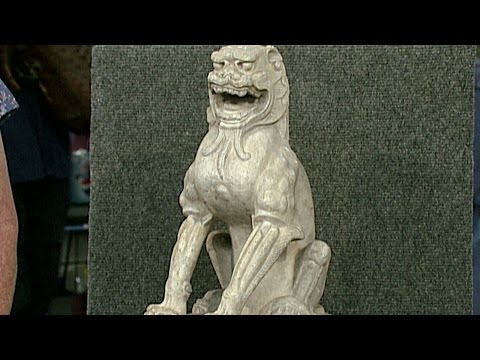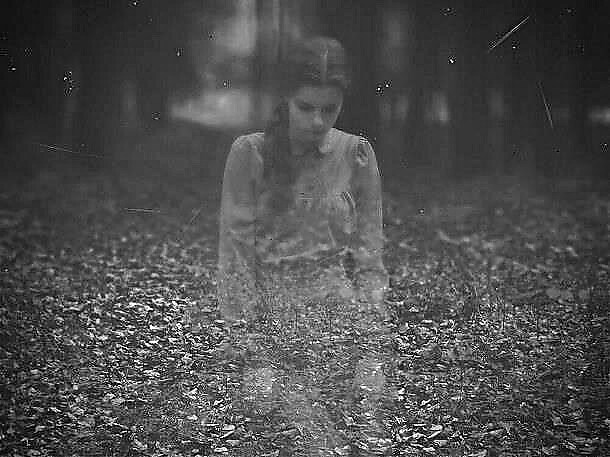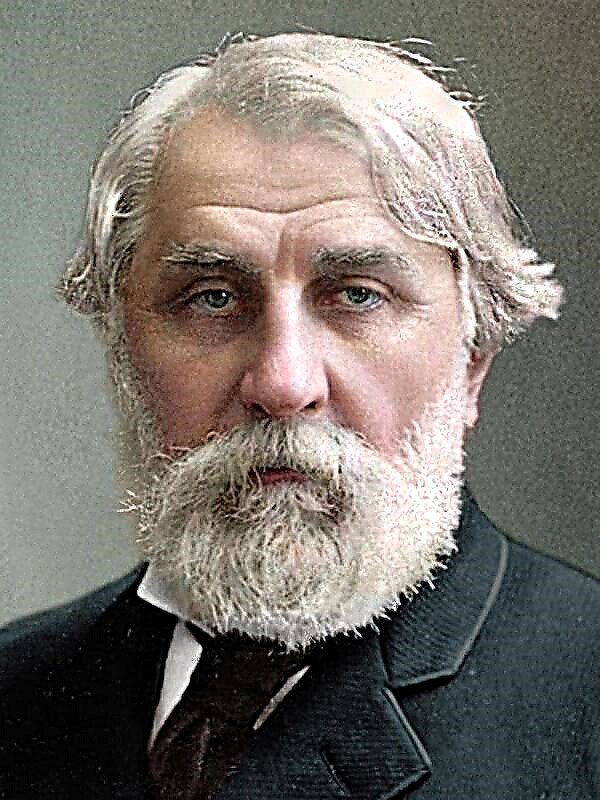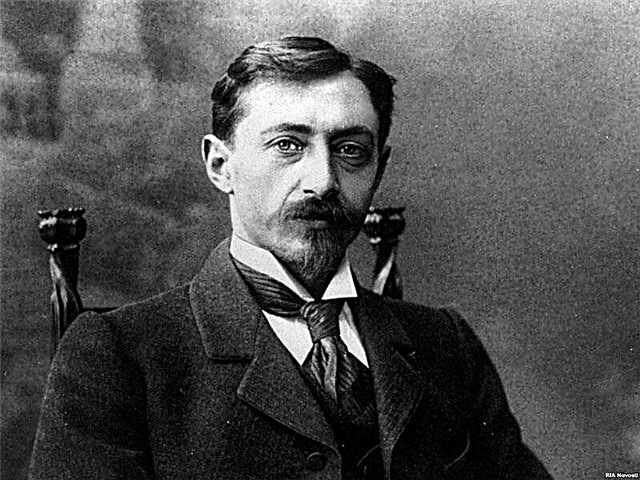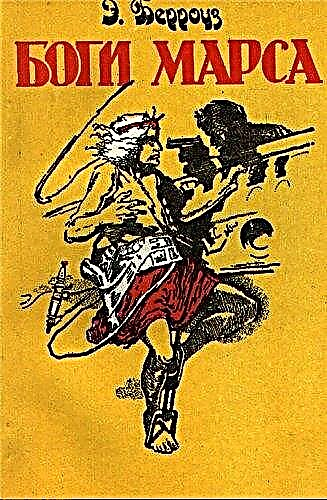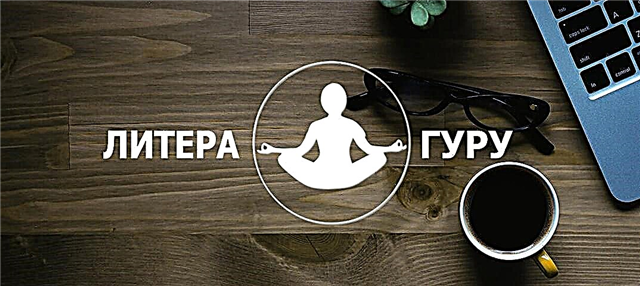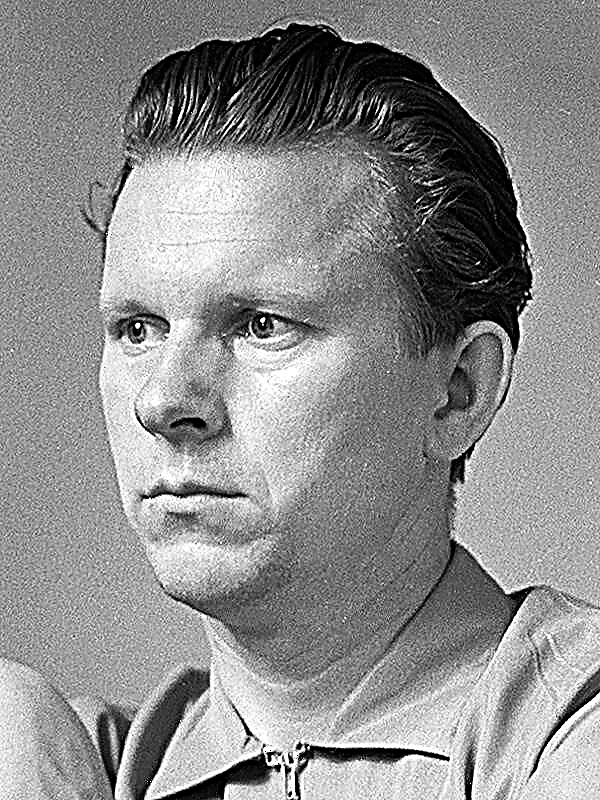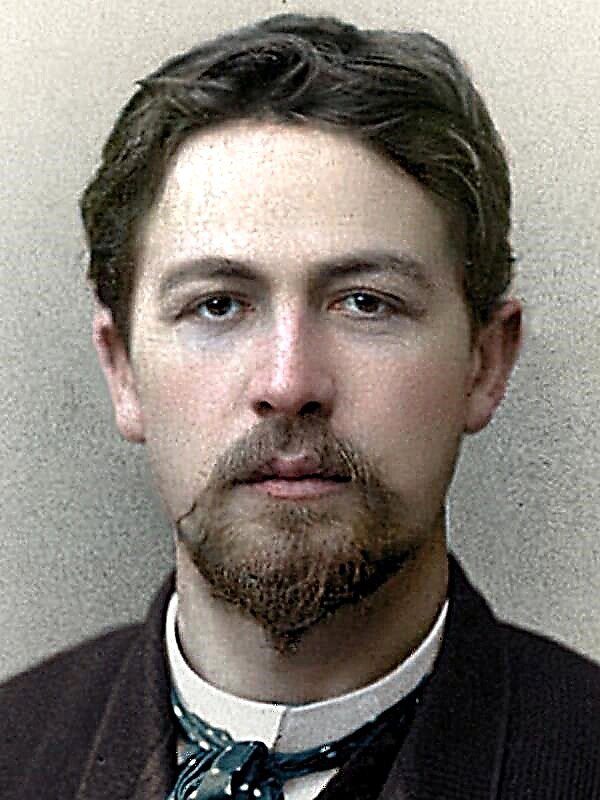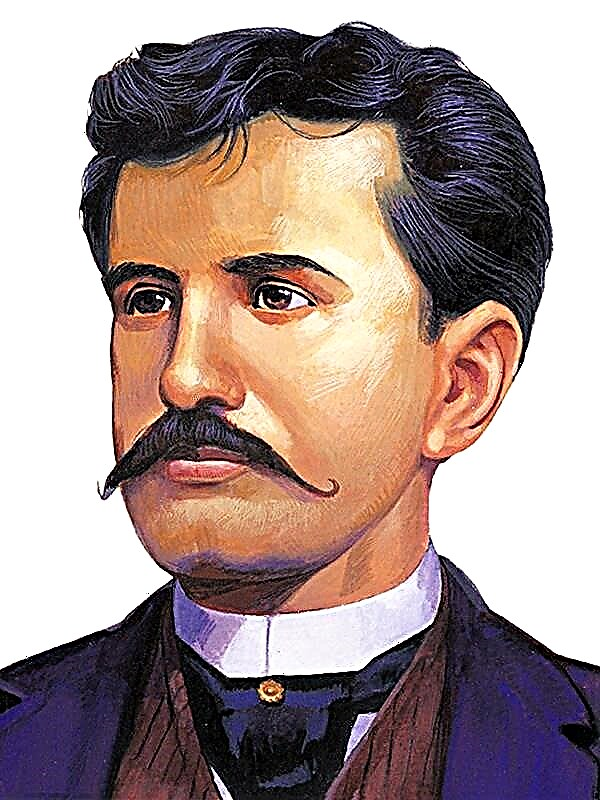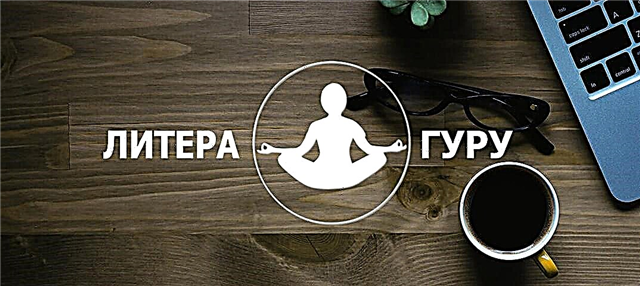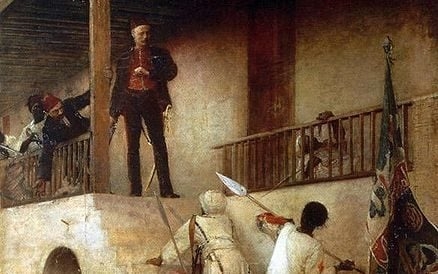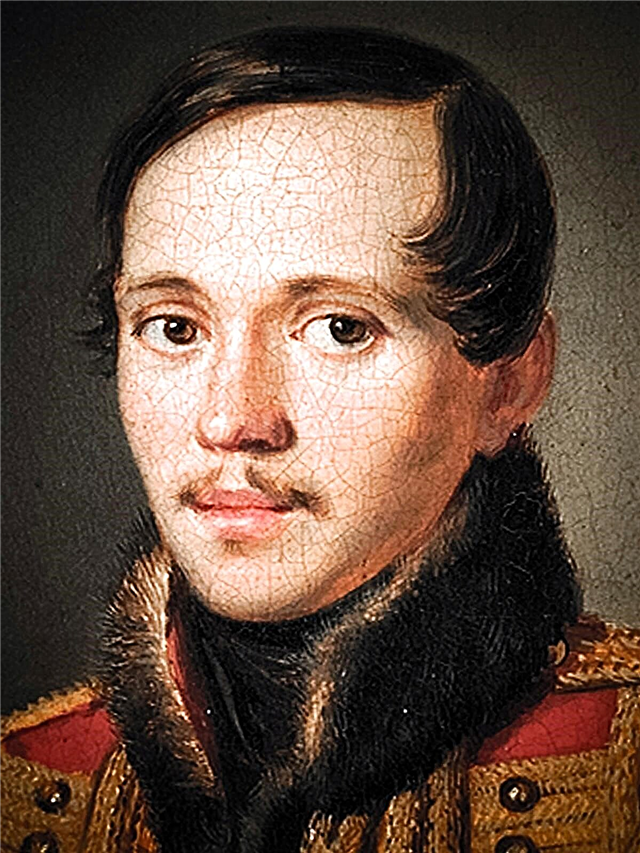The chronicler begins the narrative in 1201, with the reign of the great princelyagalitsky Roman. He notes that in his deeds, Roman followed the example of his grandfather Vladimir Monomakh. After the death of the prince in Russia, a great turmoil began. In 1202, Rurik gathered an army of Polovtsy and Russians and went to Galich. But the Galician and Vladimir boyars managed to repulse Rurik, and he had to return to Kiev. And in Galich they planted Prince Vladimir. The widow of Roman, along with the children, had to run to the Poles, since the new prince wanted to destroy the Romanov family, and the “godless Galicians” were ready to help him in this.
Lyashsky prince Lestko sent Roman’s son, Daniel, to Ugric land and invited Ugric king Andrei to help Romanov’s children - gather troops and conquer the throne of Galician for them. The princess and the second son, Vasilko, remained with the Poles, and Daniel with the Ugrian king - they supposed to marry his royal daughter.
Vladimir, who ruled in Galich, had a brother Roman, who was sitting in Zvenigorod. Between them, strife began, and Roman, having won, captured Galich, and Vladimir fled to Putivl. King Andrey found out about this, sent an army to Galich and, having captured Roman, sent him to Ugric land. At the head of the Ugric army was Benedict. The Galicians called him the Antichrist: he oppressed the boyars and citizens, his squad dishonored women. And in 1206, the Galicians called for help from Mstislav, but he did not manage to defeat Benedict. At this time, Roman managed to escape, and together with his brother Vladimir they went to war on Benedict and drove him back to Ugric land. Vladimir still began to reign in Galich, Roman in Zvenigorod, and their brother Svyatoslav in Przemysl.
In 1208, the Igorevichs (sons of the hero of the "Words about Igor's Regiment" —O.E.) conspired against the Galician boyars and, when the opportunity arose, killed them. Some, however, managed to escape to King Andrew, and they asked him to give them to the princes of Daniel in order to recapture Galich from the Igorevichs with him. The king gathered the army. They conquered Przemysl, capturing Prince Svyatoslav. From there we headed to Zvenigorod. To the Zvenigorod Prince Roman came to the aid of the Polovtsy and with them Izyaslav, Roman's nephew. They managed to drive the Ugrians from under Zvenigorod. But when Roman left the city to ask for help from other Russian princes, he was captured and taken to the camp of Daniel. Ugra governors sent to tell Zvenigorod that their prince was captured. And then the Zvenigorodites surrendered. Ugric army went to Galich. Vladimir and his son Izyaslav fled. The widow of Grand Duke Roman came to Galich to see his son Daniel. And then the boyars of Vladimir and Galician and the governors of the Ugric placed Daniel on the throne of his father, although he was still a child. But soon Galich was again besieged by Mstislav Yaroslavich, and the princess with her son had to again flee to Ugric land. Vladimir again became the prince in Galich.
Ugric King Andrei again went to Galich. Having agreed with the Lyashsky prince Lestyso, he married his son to his daughter and put him in power in Galich. The Romanovichs, Daniel and Vasilko, became princes of Vladimir. Galich at that time captured Mstislav, and Daniel married his daughter.
From 1215 to 1223, strife continued: "the boyar robbed the boyar, the smerd of smerd, the townsman of the townsman." And in 1224 an unheard-of army — the Tatars — came to the land of Polovtsy. The Polovtsians tried to resist, but even the strongest of them - Yuri Konchakovich - could not resist them and fled. The Polovtsians called for the help of the Russian princes. The Council decided to oppose the Tatars. Crossing the Dnieper, the army went to the Polovtsian lands and met the Tatar regiments. The Russian arrows defeated the Tatars and drove them far into the steppe. Eight days followed by Russian soldiers to the Kalki River. Here a fierce battle took place. At first the Tatars fled, but new regiments came to their aid. All Russian princes were defeated. This has never happened in Russia before. The Tatars, swiftly advancing, reached Novgorod Novgorod, not knowing their cunning, went out to meet the crosses and were all killed. Then the Tatars turned back to the eastern lands, and conquered the land of Tangut and other countries. Then he was killed by the Tanguts of Genghis Khan.
And the strife between the Russian princes continued. Alexander harbored enmity against his brothers Daniel and Cornflower. He began to incite his father-in-law Daniel Mstislav to war with them. Daniel called for the help of Lyashsky prince Lestko and went against Mstislav. Mstislav was forced to return to Galich. Meanwhile, Daniel and the Poles ravaged the Galician lands. However, when they met and the trial took place, it turned out that Alexander slanders both and sets them against each other. Mstislav and Daniel established peace.
In 1226, Mstislav fights with the Ugric king. Near Galich, the Ugrians were defeated and returned to their lands. Mstislav wants to put Daniil in Galich, but, deceived by the slander of his close associates, he gives it to the Ugric prince, and takes Ponisieu for himself.
In 1227, endless wars, revolts, riots continued. Prince Mstislav dies, repenting to Daniel that he gave Galich not to him, but to a foreigner. In 1228, Metropolitan Cyril, a blessed saint, tried to reconcile everyone, but could not. The army was gathered by Vladimir Kievsky and, together with the Polovtsy and some Russian princes, overlaid Kamenets. Daniel and Vasilko called Poles and went to Kiev.
In 1229, on the advice of treacherous boyars, Lestko, Grand Duke Lyashsky, was killed on the Sejm. His brother Kondrat, having teamed up with Daniel and Vasilk, besieged the Lyash city of Kalish, but could not take it for a long time, as the townspeople were desperately resisting. When the city fell, peace was made. Returning to Russia, Daniel banishes the Ugric prince from Galich. In response, King Andrew, having gathered a large army, besieges the city. But Daniel attracted Poles and Polovtsy to his side, and Andrei was forced to leave, leaving his army, which was almost completely killed by the Russians. So Daniel, having left Galich at the time due to the betrayal of the boyars, regained the city.
But in 1230, the boyars again plotted against their prince, suggesting that his nephew Alexander be seated on the throne. But their plans were violated, and Alexander had to flee to Przemysl, and then to Ugric land. There at that time was the traitor Sudislav, who persuaded King Andrew to go on a campaign in Russia again. And during 1230–1231. with varying success between the Russians and the Ugrians fierce battles were fought, as a result of which Daniel established himself on the Galician land.
At this time, Vladimir reigned in Kiev. He was going to go to the Chernigov lands and invited Daniel with him. They captured many cities along the Desna. After a fierce battle near Chernigov, the princes made peace with the Chernigovites and returned to Kiev. But at this time the Polovtsy came to Kiev. The Russian army, exhausted by campaigns, could not resist. Vladimir was captured, and Daniel fled to Galich.
In 1237, the Mongol-Tatars again came to Russia - the chronicler calls them the “godless Ishmaelites” with whom the Russian princes fought on Kalka. Their first invasion was on Ryazan land, they seized Ryazan with an attack and killed all its inhabitants, not sparing even infants. Upon learning of this, Vladimir Yury sent his son Vsevolod with a large army against the Horde. In the battle on the Kolodna River, Vsevolod was defeated. Then Yuri, leaving Vladimir, began to gather a new army, but was captured by the Tatars and killed. Batu stood at the walls of Vladimir, but the city stubbornly resisted. Frightened, young Vsevolod himself went to Batu with rich gifts, hoping to save his life and the life of the townspeople. But Batu ordered to kill him in his presence, and kill the inhabitants. By his order, the Tatars set fire to the church, where the princess with children and Bishop Mitrofan took refuge. Having destroyed Vladimir and having captured Suzdal, Batu went to Kozelsk. It took him seven weeks to take the city. Then he returned to the Polovtsian lands and from there sent troops to the Russian cities.
However, the strife between the Russian princes did not stop. In 1238, Prince of Kiev Michael, frightened of the Tatars, fled to Ugric land, while the son of the Smolensk Prince Rostislav sat in Kiev. Daniel went against him and captured him.
In 1240, Batu with a huge army approached Kiev. The army was so great that "it was impossible to hear the voices from the creak of his carts, from the roar of many of his camels, the neighing of his horses, and the whole Russian land was filled with soldiers." Instead of the city wall destroyed by the Tatar rams, residents in one day erected a new wall near the Church of the Holy Virgin. People took refuge in the church, climbed into the church vaults, and she collapsed from gravity. So Kiev was captured. Many Russian cities were destroyed, and their inhabitants were killed.
Then Batu went to the Ugrians. The troops fought on the Solon River, the Ugrians fled, and the Tatars drove them all the way to the Danube. Even before that, Prince Daniel went to the Ugric king, wanting to intermarry with him. Now he could not return to Russia: the Mongol-Tatar army blocked the path. Then he went to Lyashsky land and, to his joy, found there his princess, children and brother, who managed to escape from the Tatars. Prince Boleslav, son of Kondrat, gave him the city of Vyshgorod, and Daniel remained there until the news came that the Tatars had left the Russian land.
Having returned to Russia, Daniel continues campaigns against the specific princes. In 1245, he began a war with the Lyashsky prince Boleslav, occupying the Lublin lands up to the Vistula River. In 1246–1247 fights with the Lithuanians, having twice beat off the city of Pinsk. In 1248, the brother of Daniil Vasilko fights with the Yatvyags (an Old Prussian tribe related to the Lithuanians), liberating the original Russian cities from them. The main event of 1249 - the war with Rostislav, the son-in-law of the Ugric king, who had long aspired to reign in Galich - also ended in the victory of Daniel.
In 1250, an ambassador came to Daniil and Vasilk from Horde demanding that Galich be returned. Realizing that he is unable to defend his estate, Daniel decides to go to Batu himself. With a heavy heart, he embarks on a journey, foreseeing all the humiliations through which he will have to go. And although Batu cordially welcomes him, it is bitter for him, the prince, to kneel and call himself a slave. Daniel stayed in the Horde for twenty-five days, was released and received a Khan's label for managing his lands. In the same year, Daniel makes peace with the Ugric king, marrying his son to his daughter.
The year 1251 was marked by a new campaign against the Yatvingians, in which Russian and Lyakh warriors participated. In 1252, the Ugrian king resorted to the help of Daniel in a war with the Germans. This alliance becomes even closer in the following years: by joint efforts they conquer Moravia and other Czech lands. Daniel is very proud of this campaign: after all, not a single Russian prince has conquered the Czech Republic.
In 1255, Pope Innocent sent honorary ambassadors to Daniel, who brought a crown, scepter and crown as symbols of royal dignity. Innocent sought to reunite the Catholic and Orthodox churches, was interested in an alliance with strong Russian princes, and through ambassadors he promised help in the fight against the Horde. Daniel received a crown in the church of the Holy Apostles in the city of Dorogichin, and from that time on, the chronicler calls him king.
Permanent campaigns against the Yatvyag in 1256-1257 led to the fact that this tribe was partially destroyed, partially subdued. From this time on, the Yotvingians pay tribute to Daniel. Since 1257, Daniel began to undertake separate campaigns against the Mongol-Tatars. And the Tatars, meanwhile, began to advance into the land of Lyashsky. Crossing the Vistula, they approached the city of Sendomir. The battle lasted four days. When the Tatars broke into the walls, the entire remaining population went beyond them. People walked in holiday clothes, with crosses, candles and censers. For two days the Tatars kept them in a swamp near the Vistula, and then killed them all to one.
The year 1265 was marked by the appearance of the comet: "A tailed star was terrible in appearance in the East." At the sight of her people gripped fear and horror. The sages predicted that there would be a “great rebellion on earth.” In 1266, a "great rebellion" occurred among the Tatars themselves - they "killed each other a great many."
In 1268, the son of King Daniil Schwarn and the son of Vasilka Vladimir sided with Lithuania in the war against the Poles. Not listening to his uncle's advice, Schwarn too early entered the fray and was defeated. But after this peace came, Schwarn began to reign in Lithuania, but soon died.
In 1271, the great prince of Vladimir Vasilko died, after him began to reign his son Vladimir. In Galich, after the death of King Daniel, Leo began to reign, his son.
In 1274, the Lithuanian prince Troyden, breaking the agreement with Leo, sent an army to capture the city of Dorogichin. On Easter day the city was taken, and the inhabitants were killed. Upon learning of this, Leo sent to the Tatars, to the Grand Duke Mengu-Temir, asking for help against Lithuania. Mengu-Temir gave him an army and squads of the Dnieper princes, who were subordinate to the Tatars, Leo and the Tatar army arrived at Novogrudok before the other princes and, without waiting, took the city. The princes who came up the next day were very offended by Leo and did not go further with him to Lithuania.
In 1276, the Prussians, driven by the Germans, came to Troyden in Lithuania. He accepted them and settled partly in Gorodnya, partly in Slonim. Vladimir, after consulting with Leo, his cousin, sent his army to Slonim, not wanting the Prussians to settle on this earth. In the same year, Vladimir founded the city of Kamenets.
In 1277, Khan Nogai sent his ambassadors to the princes Leo, Mstislav and Vladimir, offering them his army with the governor to go to Lithuania together. The princes moved to Navahrudak, but, having learned that the Tatars were ahead of them and, apparently, had already plundered the city, they decided to go to Gorodnya, the “untouched place”. For the night they began near Volkovsk, the Princes sent their best boyars and servants to rob the neighborhood. Having taken all that is possible, they did not return to the army, took off their armor and, without putting up a guard, went to bed. Having learned about this, the townspeople made a sortie and captured everyone. The next day, the princes had to rescue their servants. They announced that they would refuse to take the city if prisoners were returned to them. So they got their boyars, but they didn’t do any harm to the city.
In 1279 there was famine throughout the earth. An ambassador from the yatvyag appeared to Vladimir, asking to sell bread. He sent them bread on boats along the Bug, accompanied by reliable people. We stopped for a night near the city of Poltovesk. At night they were all killed, bread was taken, and boats were sunk. Vladimir began to find out who did it. Prince Boleslav pointed him to his nephew Kondrat, with whom he was at enmity then. Vladimir sent his army to Kondrat and took many prisoners. But when Kondrat obeyed, peace was made and the prisoners returned.
In 1280, after the death of Grand Duke Boleslav, there was no one to reign in Lyashsky land. This throne wanted to take Leo. But Lyashsky boyars chose Lestko as the prince of one of Boleslav’s nephews. Then Leo turned to Khan Nogai for help.
He gave him his governor and forced the Russian princes Mstislav and Vladimir to go with Leo. They walked reluctantly, and Leo with joy. But, as the chronicler notes, “God did his will over him”: the Poles killed many boyars and servants from his regiment, and Leo returned with nothing.
In 1281, Lestko had already gone to war against Leo, and having captured Perevoresk from him, he cut all the people there, young and old, and burned the city.
In 1282, Khan Nogai decided to go to the Ugrians, ordering him to follow himself and the Russian princes. Part of Nogai’s troops went through the mountains and got lost. Instead of three days, they wandered for a month. A terrible famine began, during which, according to the chronicler, "people began to eat, and then they died themselves." As eyewitnesses testified, more than one hundred thousand people died.
In 1283, having forgotten about the failure, the Tatars, again calling on the Russian princes, go to Lyashsky lands, robbing Russian cities along the road. Only Vladimir manages to avoid this conscription, since he is seriously ill.Anticipating the imminent death, he bequeaths his principality to his brother Mstislav. However, he lived for another six years and died in 1289. After his death, Prince Yuri (the son of Leo) began to occupy the lands unwritten to Mstislav without permission. Between them, feuds began.

